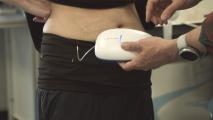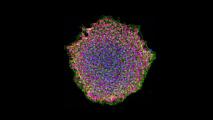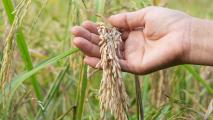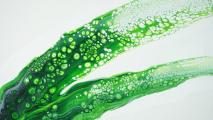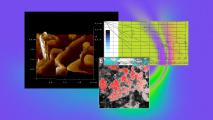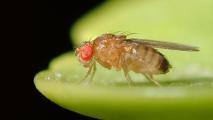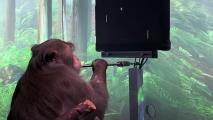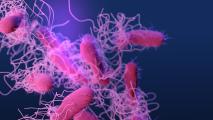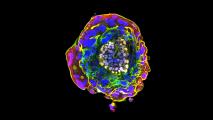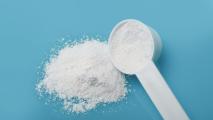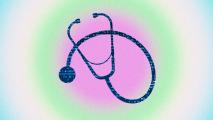
Biotech
Human history has been all but defined by death and disease, plague and pandemic. Advancements in 20th century medicine changed all of that. Now advancements in 21st century medicine promise to go even further. Could we bring about an end to disease? Reverse aging? Give hearing to the deaf and sight to the blind? The answer may be yes. And soon.
More
There’s now a wearable that can track your stress hormones
A wearable device called U-RHYTHM makes it easy for researchers to see how stress hormones ebb and flow over 24 hours.
Eastern philosophy says there is no “self.” Science agrees
Neuroscience aligns with Eastern philosophies such as Buddhism, that argue the self is an illusion, a byproduct of our thought processes.
One shot epilepsy treatment reduced seizures by 95% in first two patients
A stem cell-based treatment for epilepsy slashed the number of seizures experienced by two trial participants by 95%.
Viewing abstract art causes notable cognitive changes
Abstract art causes the viewer to place more psychological distance between themselves and the art than with more typical works.
CRISPR’d plant is resistant to the “cancer of rice”
CRISPR’d plants resistant to the devastating fungal disease rice blast could help shore up the world’s food supply.
Can India’s drains help us prevent the next pandemic?
Imagine a real-time warning system for global pandemics. Wastewater surveillance may be able to do just that. Here’s how.
Plants perform quantum mechanics feats that scientists can only do at ultra-cold temperatures
There may be a link between quantum mechanics and photosynthesis explaining why plants are so effective at converting light to food.
“Spooky” quantum biology might cause your DNA to mutate
Research suggests that quantum effects could drive mutations in human DNA — the latest development in the emerging field of quantum biology.
Could switching off a neural “death response” slow aging?
A sensory mechanism that governs how quickly flies age may also have a corollary in people.
Insulin grown in lettuce can be taken orally
New synthetic insulin harvested from lettuce plants can be made cheaply, taken orally, and transported at room temperature.
Neuralink’s monkey can play Pong with its mind. Elon Musk says human trials are next.
If Neuralink’s monkey can play Pong with its mind, imagine what humans could do with the same technology in just a few years.
Generate brilliant ideas by relaxing your cognitive filters
Theoretical physicist Leonard Mlodinow offers three strategies for relaxing your cognitive filters to give your brilliant ideas time to shine.
Cancer med appears to prevent brain aneurysms
Japanese researchers have discovered that the cancer drug sunitinib can prevent the formation of brain aneurysms in mice.
SpaceX successfully launches world’s first “space factory”
SpaceX has successfully deployed a “space factory” developed by startup Varda Space Industries to manufacture drugs in microgravity.
How intestinal viruses could help you live to be 100
People who live past age 100 have a greater diversity of bacteriophages (that is, viruses that infect bacteria) in their intestines.
Model human embryo, created from stem cells, survives past two weeks
A model human embryo capable of developing past day 14 could revolutionize our understanding of human development.
Cheap drug appears to cut long COVID risk by 41% in small study
The diabetes drug metformin cut COVID-19 patients’ risk of later developing long COVID by 41% in a small study.
Taurine appears to reverse aging in animals. Can it do the same for us?
Animals given taurine lived longer, healthier lives, suggesting that the compound may also increase human longevity.
New “AI doctor” predicts risk of death with 85% accuracy
A new AI was able to make accurate predictions about patients’ risk of death, readmittance, and more by analyzing medical notes.
Have we got the brain all wrong? Study shows its shape is more important than its wiring
Neural activity may be more influenced by the shape of the brain – its grooves, contours, and folds – than by its complex interconnections.
Get inspired with the most innovative stories shaping the world around us.













